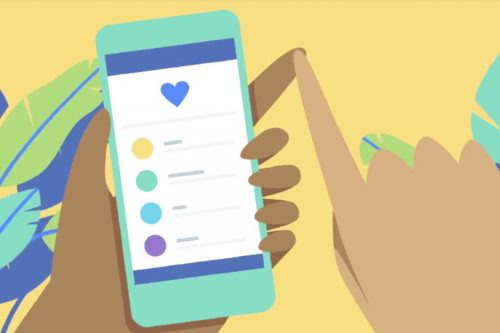MHA-NYC AND FACEBOOK EXPAND THEIR PARTNERSHIP TO PROMOTE SUICIDE PREVENTION ACROSS THE WORLD

Social media is not just for selfies anymore. MHA-NYC and the National Suicide Prevention Lifeline have had a long and robust partnership with Facebook, helping them use the power of their network to prevent suicides. In March, we took the next step forward in this exciting collaboration, expanding reporting and tools to help more people in crisis across all of Facebook’s platforms.
The MHA-FACEBOOK partnership began with Compassionate Connections, a program that enabled Facebook users to easily flag a troubling post, like a person saying they feel like hurting themselves, and instantly initiate a cycle of help for the individual in crisis. The flagger immediately received practical advice about how to reach out to the struggling friend, and the person in trouble automatically was encouraged to seek support and to connect with the Suicide Prevention Lifeline.
Today, the collaboration is going even deeper, improving and enhancing reporting and partnering with Crisis Text Line, the National Eating Disorders Association, and Zendesk to offer new, state-of-the-art crisis support services through Facebook Messenger and Facebook Live. These innovations will allow more people to reach out for and access support even more easily.
The Lifeline is also planning a SAMHSA-funded pilot program to evaluate how Facebook Messenger is helping people in crisis. Findings will be shared widely with the ultimate goal of continuing to reduce the number of suicides.
Research has shown that the best way to prevent suicide is to strengthen a person’s social connections. “It’s important that community members, whether they’re online or offline, don’t feel that they are helpless bystanders when dangerous behavior is occurring,” said Dr. John Draper, Director of the National Suicide Prevention Lifeline. These new tools empower community members to support each other, capitalizing the role of family and friends as key supports for those in crisis.
“Our communities are changing shape,” says Kimberly Williams, President of MHA-NYC. “The ways we look out for each other have to change shape with them, and technology has to be a part of those solutions. MHA-NYC and Facebook are ahead of the curve on this. Capitalizing on technology and social media to combat depression and suicide, we are exponentially increasing the number of people who will get help and hope when they need it most.”
Comments are closed here.